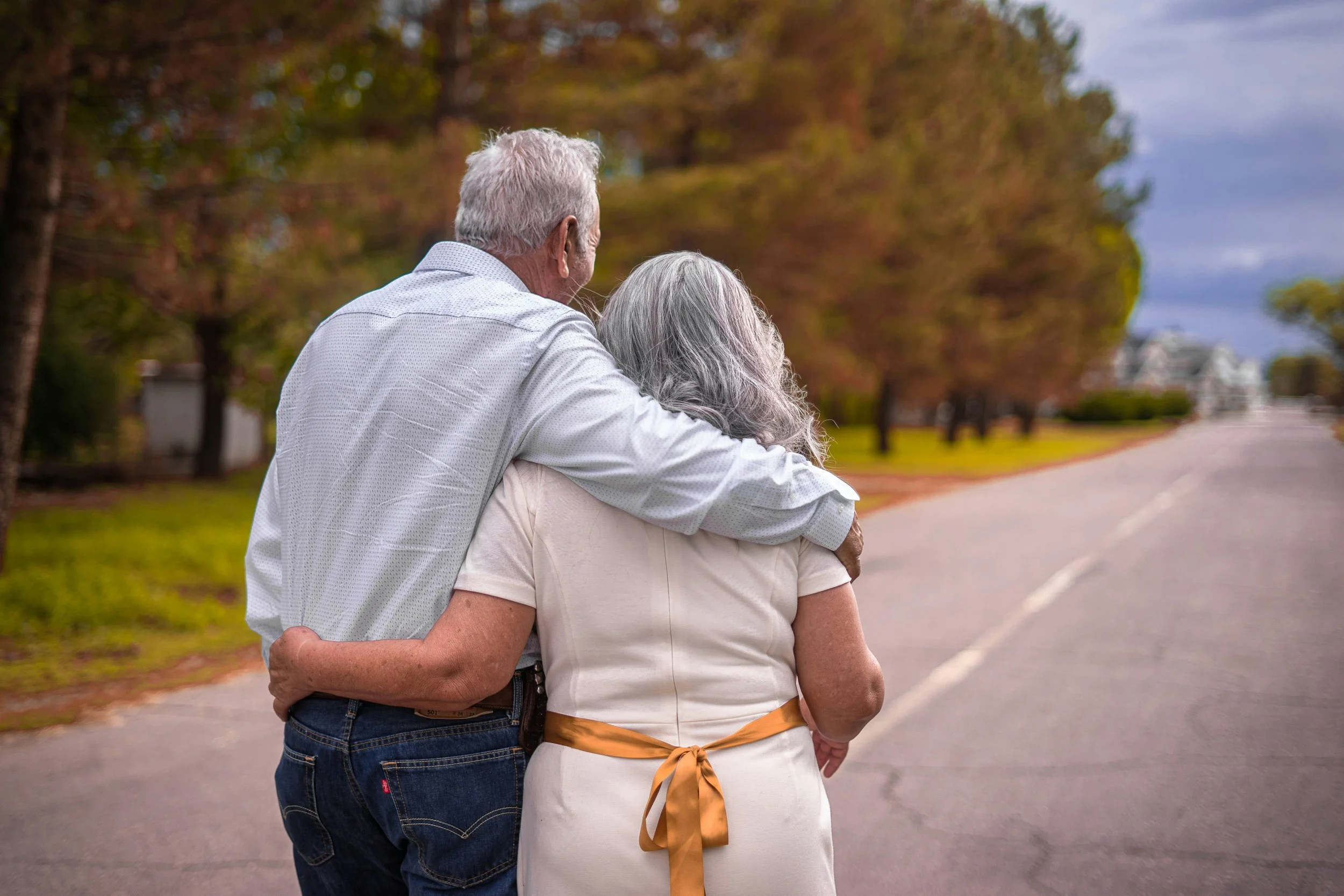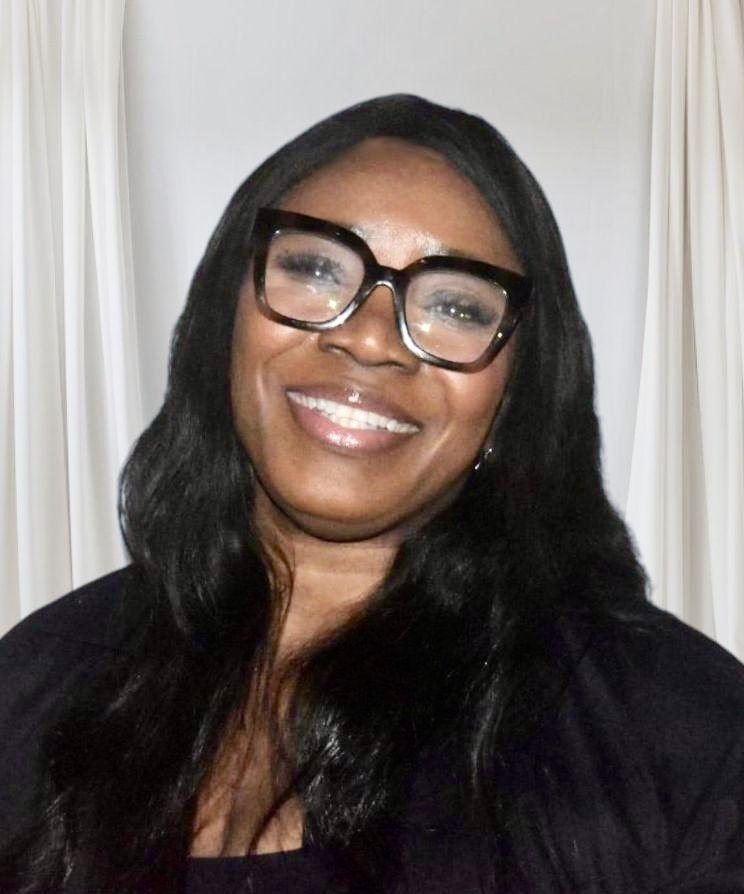Older Adults Therapy in Blackheath Village
Navigating Later Life with Compassion and Clarity care.
Ageing brings many changes in our bodies, relationships, sense of identity, and the world around us. For many, these transitions are both profound and complex. Retirement, bereavement, shifting family roles, health challenges, or a changing sense of purpose can all bring mixed emotions. While later life can hold wisdom and freedom, it can also stir feelings of loss, loneliness, or uncertainty about the future.
At Heathwell, we offer a thoughtful and compassionate space to explore these experiences. We understand that emotional wellbeing in later life is not only about coping with change, but also about making sense of your life story, your relationships, your regrets, hopes, and sense of self.
Later life isn't simply about decline or looking backwards. It's a time of continued growth, of reassessing what gives life meaning, of facing existential questions with a depth of experience that only comes with age. Yet our culture often dismisses or overlooks the psychological complexity of ageing, leaving many older people feeling invisible or unsupported.
Therapy in later life is not about fixing the past, but about integrating it, finding meaning, and reconnecting with the parts of yourself that still seek expression and care. It's never too late to seek support, to heal old wounds, or to find new ways of being.
If you're an older adult seeking therapeutic support, or if you're concerned about an older person in your life, we're here to help.
Why older adults seek therapy
People come to therapy in later life for many reasons, and these concerns deserve the same attention and care as those at any other life stage.
Life transitions and identity:
Adjusting to retirement and loss of professional identity
Empty nest syndrome and redefining life after children leave home
Navigating changes in physical health or cognitive function
Feeling disconnected from a rapidly changing world
Loss of independence or facing difficult care decisions
Questioning purpose and meaning in later life
Feeling invisible or marginalised due to age
Facing mortality:
Coming to terms with ageing and finite time
Fear or anxiety about death and dying
Making peace with life choices and paths not taken
Legacy concerns and what you'll leave behind
End-of-life planning and autonomy
Relationships and loss:
Bereavement and cumulative grief
Loneliness and social isolation
Adult children conflicts or family estrangement
Becoming a carer for a partner or navigating role changes in long-term relationships
Dating and intimacy in later life
Reflecting on parenting and unresolved family pattern
Long-standing difficulties:
Depression or anxiety that's persisted for years
Trauma from earlier in life that's resurfacing
Relationship patterns that no longer serve you
Unprocessed grief from decades past
Regrets or "unfinished business"

Working therapeutically with older adults requires particular understanding and sensitivity. Ageism exists within healthcare, including mental health services, where older people's distress is sometimes dismissed as "just part of ageing" or their concerns minimised.
We reject this. Psychological distress at any age deserves attention. Depression isn't a normal part of ageing. Loneliness isn't inevitable. Loss of meaning isn't something to simply accept.
At the same time, we recognise that older adults bring decades of life experience, wisdom, and resilience to therapy. You've lived through historical events, cultural shifts, and personal challenges that have shaped who you are. Therapy isn't about fixing you - it's about supporting you to navigate this stage of life with the complexity and depth it deserves.
We also understand the practical realities: physical health concerns that might affect attendance, hearing or cognitive changes that require adaptation, past experiences of mental health stigma that might make seeking help feel difficult, and the courage it takes to try something new in later life.
What makes therapy with older adults different
Our approach to working with older adults
Our therapists bring both depth and breadth to their work with older adults. We integrate dynamic interpersonal therapy, art psychotherapy, existential psychotherapy, and psychodynamic approaches, all underpinned by a trauma-informed and person-centred foundation.
-
Dynamic Interpersonal Therapy (DIT) can be particularly valuable in later life, helping you process long-standing relationship patterns, unresolved emotional conflicts, and life transitions such as retirement, bereavement, or changes in social roles.
By exploring how past experiences and relational patterns influence present relationships, DIT fosters emotional resilience, improves communication, and enhances the quality of late-life relationships and wellbeing.
Read more about DIT here.
-
offers a unique approach that combines creative expression with talking therapy. You don't need to be good at art to benefit - the value lies in what your artwork represents for you. Art therapy can be especially helpful for processing experiences that are difficult to put into words, accessing deeply held emotions, and exploring memories in a safe and containing way. The creative process itself can support emotional regulation, self-expression, and a sense of agency.
Read more about Art Psychotherapy here
-
Psychotherapy provides a reflective space for exploration through conversation. Traditional talking therapy allows you to process experiences, understand patterns, and develop new ways of relating to yourself and others. It offers the time and attention to make sense of your life story and navigate the complexities of later life at your own pace.
-
Existential Psychotherapy is particularly well-suited to later life, as it addresses the fundamental questions that often become more pressing with age: questions of meaning, identity, freedom, mortality, and what truly matters. This approach honours the complexity and depth of lived experience, supporting you to face these profound questions with honesty whilst finding your own authentic responses.
It's about living more fully in the time you have, rather than simply managing symptoms.
-
Couples and Relationship Therapy works with all types of relationships that matter in later life - not only romantic partnerships, but also relationships with adult children, siblings, friends, or other significant people.
In couples work, we address the unique challenges that emerge in long-term relationships: after decades together, couples often face transitions that fundamentally alter their partnership - retirement changes daily rhythms and roles, health issues may require one partner to become a carer, adult children leaving home can shift the focus back onto the relationship, and the loss of physical intimacy or sexual changes can create distance.
Relationship therapy can also help with parent-adult child dynamics, sibling conflicts that have persisted for decades, or navigating changing friendships.
It provides space to address longstanding patterns, improve communication, rediscover connection beyond familiar roles, and find renewed understanding. It's never too late to strengthen a relationship or address difficulties that have persisted for years.
-
Psychosexual Therapy for individuals or couples recognises that sexual intimacy and desire remain important throughout life, even as they change and evolve. Older adults often face specific challenges: erectile difficulties, changes in desire or arousal, pain during sex, the impact of medication or health conditions on sexual function, body image concerns, or navigating intimacy after the loss of a partner. These concerns can cause significant distress, yet many older people feel unable to discuss them with healthcare professionals or fear being dismissed. Psychosexual therapy offers a safe, non-judgemental space to explore these issues, whether individually or as a couple.
Addressing sexual wellbeing isn't frivolous - it's integral to quality of life, relationship satisfaction, and sense of self. Working with couples allows both partners to voice their experiences and find ways to maintain or rebuild physical and emotional intimacy.
All of these approaches focus on making sense of your life story, integrating past experiences, and supporting you to navigate the present with greater understanding and authenticity. We work at a pace that feels manageable for you, adapting our approach to your specific needs and circumstances.
Sessions are typically 50 minutes and can be weekly or fortnightly, depending on what works for you. We offer both in-person appointments at our Blackheath, Southeast London practice and online sessions for those who find travel difficult. Please note that DIT is typically limited to 16 sessions, though this may be extended in certain situations.
Common concerns we address
-
These aren't normal parts of ageing, but they are common and treatable. Depression in older adults often presents differently from depression in younger people - it may manifest as physical aches and pains, memory difficulties, irritability, or loss of interest in previously enjoyed activities. Anxiety can show up as excessive worry about health, catastrophic thinking, or physical symptoms like chest tightness or shortness of breath. These conditions can be triggered by life changes, chronic health conditions, medication side effects, or cumulative losses. We work with the particular ways depression and anxiety manifest in older adults, addressing both the practical and existential dimensions of these experiences.
-
Losing partners, friends, siblings, and sometimes even adult children creates layers of grief that can feel overwhelming. The losses accumulate - each bereavement carries not only its own weight but also echoes of previous losses. You may find yourself grieving not just people, but roles, independence, health, or the life you imagined for this stage. Disenfranchised grief - loss that isn't socially recognised, such as the death of a former partner, a close friend, or a pet - can be especially isolating. We provide space to honour these losses in all their complexity whilst finding ways to continue living with meaning and connection.
-
Social circles often shrink in later life through bereavement, mobility challenges, retirement, or adult children moving away. Loneliness isn't simply being alone - it's the painful feeling of disconnection and the sense that meaningful relationships are missing from your life. Chronic loneliness can have profound effects on mental and physical health, increasing risks of depression, cognitive decline, and cardiovascular disease. Yet rebuilding social connections in later life can feel daunting. Therapy itself offers a consistent, meaningful connection whilst we explore what's making it difficult to connect with others and find practical ways to rebuild social relationships that feel authentic to you.
-
Chronic illness, pain, reduced mobility, hearing or vision loss, or cognitive changes can feel like profound betrayals of the body you've lived in for decades. These changes affect not just what you can do, but how you see yourself and your place in the world. You may grieve your former physical capabilities whilst simultaneously trying to adapt to new limitations. The fear of further decline or dependency can create constant anxiety. We help you find ways to live with these realities - processing the grief and anger they bring - without losing your sense of self or agency.
-
Long-term relationships face unique challenges in later life that can strain even the strongest partnerships. Adapting to retirement means renegotiating daily routines and finding new ways to occupy time together after years of separate working lives. Health changes may require one partner to take on caregiving responsibilities, fundamentally altering the balance of the relationship. Sexual changes or loss of physical intimacy can create distance and unspoken resentment. After decades together, couples may find they've grown apart or fallen into rigid patterns that no longer serve them. We offer couples therapy to help partners communicate more effectively, address longstanding patterns with honesty, rediscover each other beyond caretaking or functional roles, and find renewed intimacy and understanding. Even long-term relationships can change and deepen.
-
Sexual intimacy doesn't end with age, but it does change - and those changes can be distressing and confusing. You might be experiencing changes in desire or arousal, erectile difficulties, vaginal dryness or pain during sex, difficulty reaching orgasm, or body image concerns that make intimacy feel impossible. Health conditions like diabetes, cardiovascular disease, or prostate issues can affect sexual function, as can medications for depression, blood pressure, or other conditions. You may be navigating sexuality after the loss of a partner, uncertain how to approach intimacy with someone new. Or perhaps you're in a long-term relationship where sex has become a source of tension or avoidance rather than connection. We provide a safe, non-judgemental space to explore these issues, whether individually or as a couple. These concerns are valid and treatable, and deserve sensitive, specialist support. Addressing sexual wellbeing isn't frivolous - it's integral to quality of life, sense of self, and relationship satisfaction.
-
Family dynamics in later life can be particularly complex and painful. Adult children may be making decisions about your care without consulting you, or you may feel invisible in their lives. Grandparenting can bring joy but also unexpected grief if access is limited or relationships are strained. You might be caring for your own ageing parents whilst managing your own health concerns. Long-buried sibling rivalries or family conflicts can resurface, particularly around caregiving responsibilities or inheritance. Some older adults face estrangement from adult children - a particularly painful loss that often goes unacknowledged. We help you understand these dynamics, set boundaries where necessary, process hurt and disappointment, grieve relationships that cannot be what you hoped, and find ways forward that honour your needs and dignity.
-
Later life naturally brings reflection - looking back over the life you've lived, the choices you made, the relationships you've had. This review can be enriching, but it can also surface regrets, guilt, shame, or a sense of "what if." You might be grappling with things left unsaid, relationships that ended badly, career paths not taken, or ways you feel you've failed as a parent, partner, or person. Some experiences from decades ago may resurface with unexpected intensity. We support you in making peace with your past where possible, addressing regrets with honesty and self-compassion, finding resolution or acceptance where circumstances cannot be changed, and integrating all of your experiences - the painful and the joyful - into a coherent sense of self and life story.
Getting started
Beginning therapy in later life can feel daunting, especially if you've never tried it before or if you grew up in a time when mental health wasn't discussed openly. Many older adults worry about being judged, feel they "should" be able to cope alone, or question whether therapy is "for people like them."
We understand these concerns. There's no right or wrong way to feel about starting therapy, and you don't need to have everything figured out before you begin.
We offer initial consultations where you can meet your therapist, share what's brought you to therapy, and get a sense of whether we're the right fit. You're under no obligation to continue beyond that first meeting.
Our practice is located in the heart of Blackheath Village in Southeast London and we also offer online sessions via secure video link for those who prefer or need this option.
Meet our therapists who work with older adults
Funmi Deinde - DIT Therapy
Trish Riley - Psychosexual Therapy
Kellie High - Art Psychotherapy
Poppy Oldham - Art Psychotherapy




